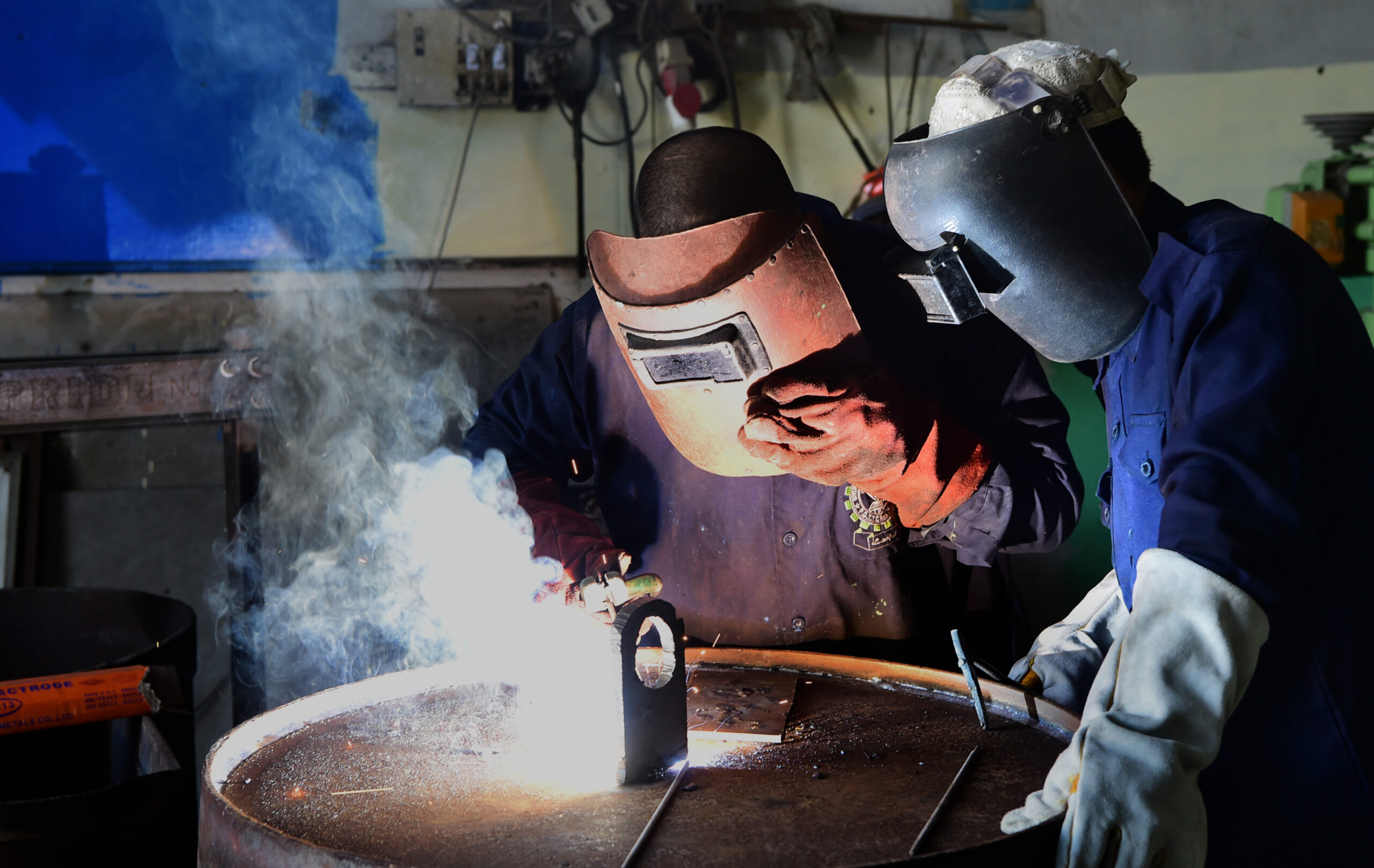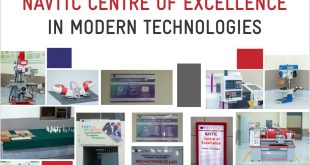
Mehtab Haider
Returning migrants require guidance, counselling, training and supervision to become an effective part of the society
The world continues to witness changes in important aspects of people’s lives since being hit by the Covid-19 pandemic. Many countries, developed as well as under-developed, have experienced mass lay-offs because both the public and private sectors face unprecedented disruptions. Supply disruptions have affected the momentum of growth.
Reintegration of returning migrants into the social and economic structures of their home nations is one of the important issues in these times.
It’s a crucial aspect of the labour migration process requiring supervision and a systematic approach by the respective governments. Most of the migrants had been lawfully residing and working in foreign countries. Some were naturalised citizens or asylum seekers.
Irrespective of category they may belong to, on their return to their home country they require guidance, counselling, training and supervision to become an effective part of the society.
The returning emigrants may be provided investment opportunities in the export processing zones. The government should consider providing fiscal incentives like tax holidays/breaks, etc to those intending to set up businesses in Pakistan.
More focused efforts are needed to increase the flow of remittances through formal channels and harness their full development potential. For maximum benefits to accrue from the remittances Pakistan needs to provide a friendly economic environment through sound macro-economic policies, including stable exchange rates, basic physical infrastructure, improved market integration, reliable financial and other institutions, a transparent legal system and good governance. These are the conditions that can prepare the economy for development and equip it to benefit from the opportunity.
The government’s decision to establish an organisation to handle applications and complaints of returning overseas Pakistanis on a priority basis is a positive step. It is considering establishing a reintegration centre as a pilot project. The centre will be managed by the Overseas Pakistanis Foundation (OPF).
It will serve as a focal point to address any questions on reintegration in Pakistan. It will also serve as a One-Stop Solution for information on investment, project feasibility, payment of outstanding dues by foreign employers and re-employment options. The returning migrants will receive information and counselling on a variety of topics, including overseas employment, migrant rights and protection, skills development and vocational training programmes in Pakistan as well as re-employment, both abroad and in Pakistan.
The reintegration centre will also provide assistance in starting new businesses, obtaining micro-loans and purchasing plots in economic zones.
In 2020, the Ministry of Overseas Pakistanis and Human Resource Development (MOPHRD) finalised a National Emigration and Welfare Policy for Overseas Pakistanis with technical and expert support from the International Centre for Migration Policy Development (ICMPD) for the facilitation of overseas Pakistanis. A lot more needs to be done, however.
The European Return and Reintegration Network (ERRIN) is an initiative of 16 European states that helps to ensure that migrants can return home to Pakistan and other countries in a dignified and humane manner. The ERRIN is working with local organisations in 40 countries, offering comprehensive assistance for returning migrants.
In Pakistan, the local partner is the WELDO, a not-for-profit organisation active since 2003. The WELDO has worked with over 900 national and international partners on a wide array of projects. It started working on return and reintegration in 2010. Since then, it has provided support to over 7,000 people. Following the initial assistance, provided upon arrival, the reintegration support may involve support for housing, medical treatment, vocational training and educational needs, or setting up a business.
The IRARA is another global team of humanitarian and migration specialists operating in more than 20 countries. It is working with people returning to their countries of origin to support them on rebuilding their lives within their communities.
In Pakistan, the IRARA is planning to provide a training platform via the IRARA Livelihood Hub where the returning migrants learn new skills or update existing skills. This up-skilled workforce can benefit both the domestic and international labour markets.
Only a small percentage of people in Pakistan acquire the skills necessary to make them employable. This can lead to poverty. On the other hand, private sector employers find it difficult to access the skilled labour they require, limiting the country’s economic growth.
In Lahore, a Pakistan-German Facilitation and Reintegration Centre (PGFRC) has recently started operations. It has an advisory desk in Islamabad. The PGFRC was founded by the German development agency, Deutsche Gesellschaft für Internationale Zusammenarbeit (GIZ) GmbH in collaboration with the Ministry of Overseas Pakistanis and Human Resource Development, and the Overseas Pakistanis Foundation (OPF), with funding from Germany’s Federal Ministry for Economic Cooperation and Development (BMZ). PGFRC is supporting and assisting returning migrants and the local population with their social and economic reintegration.
The Technical and Vocational Education and Training (TVET) Sector Support Programme’s newly launched initiative, Reintegration of Returnees in Pakistan (RoR) provides reintegration assistance to returning citizens, particularly young adults. Commissioned by the German Federal Ministry of Economic Cooperation and Development (BMZ), Reintegration of Returnees in Pakistan is being implemented by the Deutsche Gesellschaft für Internationale Zusammenarbeit (GIZ) GmbH in collaboration with the National Vocational and Technical Training Commission (NAVTTC) under the umbrella of the TVET Sector Support Programme.
This initiative helps both returning overseas workers and other citizens by providing them with career and entrepreneurship advisory services, competency-based training and assessments, recognition of prior learning certifications and employment promotion. The assistance measures are mostly undertaken in the Punjab, the province most affected by return migration. The initiative aims to assist 15,000 people, including 6,500 returning from Germany and Gulf Cooperation Council (GCC) countries.
Career and Entrepreneurship Advisory Services under Reintegration of Returnees in Pakistan (RoR) is a support measure facilitating 6,000 individuals, including 3,000 returning workers, by providing them with career and professional advisory services for employment opportunities in different economic sectors and connecting them with micro-financing institutions for start-up and viable expansion opportunities.
Under Recognition of Prior Learning (RPL), 2,000 individuals, including 1,000 returning migrants, are being supported. The approach recognises and certifies the competence and skills of workers who have been active informal labour market. It enables workers with skills to gain access to better learning and employment opportunities.
Another support measure is facilitating 3,000 individuals, including 500 returning workers, in the successful completion of Competency-based Training and Assessments (CBT&A) through implementing partners in the Punjab.
The fourth aspect is employment promotion. It is facilitating 4,000 individuals, which includes 2,000 returning workers, by creating pathways for self-employment and dependent-employment opportunities. This includes training in entrepreneurship followed by in-kind support for small business start-ups.
These initiatives are a ray of hope for the retuning Pakistani migrants, but given the enormity of the problem, a lot more needs to be done in this regard. There is also need for psychological counselling sessions for returning workers as the sudden loss of an overseas job and the family pressure to become economically productive can be quite traumatic.
Originally appeared in The News on February 6, 2022. The writer is a senior reporter based in Islamabad and this article presents his personal views on the topic.
 Pakistan TVET REFORM Support Programme Technical and Vocational Education and Training (TVET) Reform support Programme
Pakistan TVET REFORM Support Programme Technical and Vocational Education and Training (TVET) Reform support Programme






